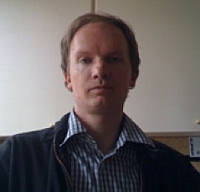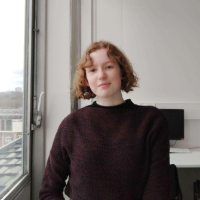Our lab members
- Principal investigator
- Post-doctoral researchers
- PhD researchers
- Visiting researchers
- Internship students
Principal Investigator
Tom Verguts

Personal statement
Humans are biological agents. Thus, behavior is generally adaptive, meaning that it aims to optimise some goal function (e.g., to minimise error or to maximise reward). At the same time, humans live in rapidly changing environments, so this ideal will often not be reached.
From this perspective, human behavior is often not optimal, but humans learn to gradually achieve their goal (function). In summary, humans learn adaptive behavior, and this defines the topic of our research group.
Although this is a fairly broad topic, there are a few recurring themes, such as learning to use inter-areal synchrony for neural communication; learning what to store in declarative memory; and learning the (meta-)parameters of decision processes. For this research, we use behavioral, computational, and neural methods.
Post-doctoral researchers
Currently, we have no postdocs working in our lab.
PhD researchers
Jonas Simoens

Psychologists tend to be interested not only in understanding, but also in improving, human cognition and behavior. Correspondingly, it has already been extensively demonstrated that concrete behaviours can indeed be modulated by selectively rewarding certain behaviours more than others. Inspired by computational models of cognitive control, I investigate whether, in the same way, it is also possible to modulate abstract task execution parameters, such as learning rate, as described by computational models of learning and decision making. Moreover, I investigate whether these parameters can be adapted to multiple environments (in terms of reward contingencies) simultaneously, guided by associated contextual features.
I conduct this research in collaboration with Tom Verguts and Senne Braem, using a combination of computational modeling, behavioural and neuroimaging techniques.
Haopeng Chen

My research topic is the behavioral and neural nature of the testing effect. The testing effect refers to the phenomenon that testing can help people reinforce the learned materials better than restudying. Although the testing effect has been demonstrated in many studies and holds major educational implications, its origin has remained unclear. Based on earlier empirical work and theory formation, we currently postulate that the testing effect derives from reward prediction error (RPE). To be specific, during testing, people will calculate their confidence in their answers and get feedback, which will trigger the RPE (feedback-confidence). Therefore, it might be the RPE triggered by testing that leads to the testing effect. We will try to investigate this postulation at both behavioral and neural (fMRI) levels.
Xiaoyu Zhang

My research interest is how human attention works in learning different tasks and how to model this procession with neural networks and oscillation. Humans can learn new tasks with transferable knowledge and adapt to different environments quickly. Among these activities, attention plays an important role, which has been proposed to be implemented via oscillation in the brain. We build models with neural networks and oscillations and investigate how the models implement cognitive flexibility, particularly generalization with well-designed complex psychological tasks. Then, we will compare the model performance with the EEG results from human behavioral experiments. Using computational modeling, EEG, and behavioral methods, I am collaborating with Tom Verguts and Mehdi Senoussi for this research.
Mengting Xu

To adapt to an ever-changing environment, humans must maintain, update, and process external information over short time scales while simultaneously learning from experience to guide ongoing behavior. Working memory plays a crucial role in these cognitive processes by temporarily storing and manipulating information to support flexible decision-making and adaptive responses. However, how working memory processes are shaped or optimized over time remains underexplored. One promising perspective is that neural oscillations provide a mechanism for flexibly retaining and binding information in working memory. Inspired by this idea, we aim to develop an artificial neural network that incorporates oscillatory dynamics to gain deeper insights into the implementation of working memory. The model will be tested and refined using neural (e.g., EEG) and behavioral data to better understand how the brain integrates working memory processes across different time scales during cognitive tasks. This research is conducted in collaboration with Tom Verguts and Mehdi Senoussi.
Visiting researchers
Currently, we have no visiting researchers working in our lab.
Internship students
Andrea Burda

Machines and humans learn in fundamentally different ways. While machines are simply trained by randomly sampling tasks from a vast data set, humans actively adapt their sampling method to maximise learning. Tasks are administered in a meaningful order by gradually integrating more concepts, or a higher complexity. Such training requires not only the “student” (the learning agent) to learn from the data, but the “teacher” (which delivers data) to learn which task to attribute for efficient learning: this is curriculum learning. During my internship, I want to describe this phenomenon through computational models and test their efficiency against random sampling. The end goal is to enhance our understanding of human learning. This research is conducted in collaboration with Tom Verguts and Haopeng Chen.
Please get in contact if you are interested in a research stay or an internship in our lab. Want to see who used to work at our lab? Find a list of our previous lab members here.

 Tom.Verguts@UGent.be
Tom.Verguts@UGent.be @tomverguts
@tomverguts users.ugent.be/~tverguts
users.ugent.be/~tverguts 0000-0002-7783-4754
0000-0002-7783-4754